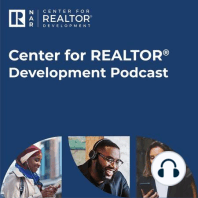56 min listen

004: Short Term Rentals with Brian Blaesser
004: Short Term Rentals with Brian Blaesser
ratings:
Length:
46 minutes
Released:
Jul 4, 2017
Format:
Podcast episode
Description
In the previous episode, Monica and her guest discussed short-term rentals as one of the main forms of income growth in real estate. In today’s episode, Brian Blaesser joins Monica to talk about different aspects of short term rentals. Short term rentals have become a mainstay of the tourism industry in many resort towns, and with the rise of Airbnb and VRBO.com, there has been a rise of short term rentals in all parts of the country, in all kinds of neighborhood settings. Many people are buying real estate and using it for a short term rental. Brian shares tips to know, information about what regulations you might encounter, and how agents can help their clients who are hoping to acquire short term rentals. Brian talks about six points for people to understand when it comes to the law and the legal rights to use property. These points can help guide anyone who is interested in doing short term rentals in the way they think about their environment in the government jurisdiction they’re in. The first point: The right to rent is a core property right. There are three things you can do with your single family residence: you can live it in, you can rent it, or you can sell it. The second point: Renting is a residential use. With things like Airbnb where investors own multiple properties, it is starting to edge into the territory of being a business. Even if it may be, it doesn’t defeat the residential status of the property. The third point: You have the right to use your property for productive purposes, but it can’t interfere with your neighbor’s use and enjoyment of their property, or injure the community at large. Provided the behavior on your property does not cause a private or a public nuisance, you have the right to rent. The fourth point: Because it is a core property right, it can’t be turned into a privilege. The fifth point: While a vacation rental may be considered a business that could be subject to a business or occupational tax, renting is still a residential use, and remains that core property ownership right. The sixth point: There are registration and licensing schemes that some communities are proposing to inspect and monitor what people are doing with their rental properties. One of the ways agents can help their clients who want to acquire short term rentals is to know the local, state, and federal regulations that may apply in this situation. In terms of local regulation, it is important to know what approach the community takes — usually under the land use zoning codes or non-zoning regulations. A community may only allow rentals in certain zones, or have regulations about how many rentals can be in one community. Zoning only regulates the use, not the user, so this is something to keep in mind when knowing your rights. An example of non-land use or zoning restrictions would be a licensing or registration requirement or quantitative/operation restrictions. There are some concerns about how short term rental “businesses” are structured. If you purchase a property in a community that you are unfamiliar with, it’s important to learn the neighbor character of the area to see if it’s a viable possibility for a short term rental. You need to be aware of how much your short term rental may have an impact on the quality of life of a neighborhood. Many Home Owners Association have covenants that were set in place before short term rentals rose in popularity. Some may have points that try to challenge having short term rentals in the neighborhoods. You should find out if there is a restriction in the documents from the start, but even if there’s not, you may be subject to them later. Despite what state law says, these documents function as a private contract and you could still fall under those restrictions. As it stands right now, many insurance companies don’t offer homeowners insurance policies that include coverage for business-related risks or properties that are renting out regularly. There are some other types
Released:
Jul 4, 2017
Format:
Podcast episode
Titles in the series (98)
006: Negotiations in Real Estate with Darren Kittleson: Negotiations are a crucial part of all real estate transactions. Improving your skills in negotiating is the topic for better serving your clients this month. Darren Kittleson joins Monica to define what a win-win transaction is, and how to achieve... by NAR’s Center for REALTOR® Development